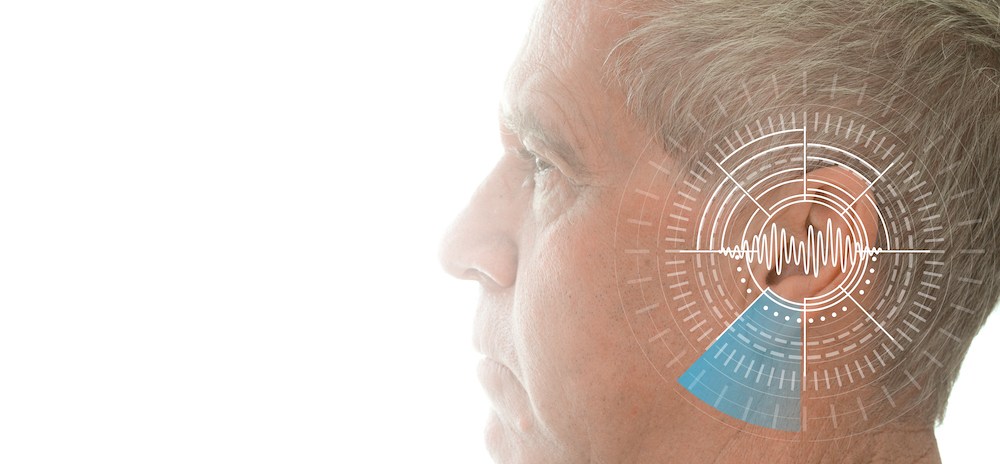How to Choose the Right Hearing Care Provider
Finding the right hearing care provider is a key step in managing hearing
Now serving the Westerly area, Schedule today!

By: admin | January 31, 2024
Winter’s chill can bring about changes in your tinnitus. This common issue, most often described as a ringing or buzzing sound in the ears, can sometimes seem more pronounced during the colder months. It might seem strange to link weather conditions with an auditory issue like tinnitus, but there’s a growing body of evidence suggesting that cold and dry air could indeed have an impact.
Understanding this relationship is crucial for those who experience tinnitus and are seeking ways to manage its effects during different seasons. So, as you bundle up against the cold, it’s worth considering how these seasonal changes might be affecting your hearing health too.
Tinnitus is sometimes a difficult issue to understand because it impacts everyone differently. It is a persistent or intermittent ringing, buzzing or hissing sound in the ears without an external source, that can significantly impact your auditory experience. Even if it’s not always constant, its intermittent nature can still affect individuals during various daily activities. Tinnitus is not a condition itself but a symptom of an underlying issue, such as age-related hearing loss or exposure to loud noise. Common symptoms associated with tinnitus include:
In the world of tinnitus, it’s important to understand its common triggers. This ringing or buzzing sound in your ears can be set off by various factors. From exposure to loud noises and certain medications to high levels of stress and even changes in weather, these triggers can vary greatly from person to person.
Tinnitus is as unique as you are. What might cause a flare-up for one person might not affect another at all. This individual variability makes understanding and managing tinnitus a bit more complex but not impossible.
So, how do determine what triggers are affecting your tinnitus symptoms? Being informed is key!
The winter season can bring about challenges that may exacerbate tinnitus symptoms, particularly when coupled with heightened stress and emotional factors. The stress associated with holiday preparations and gatherings may contribute to an increase in tinnitus intensity. Additionally, for some individuals, the change in season can trigger or worsen feelings of depression and anxiety, which are known to be associated with tinnitus. Understanding the potential impact of stressors related to the holidays and seasonal changes allows individuals to be proactive in managing their emotional well-being, potentially mitigating the effects on tinnitus.
Understanding the link between weather shifts and tinnitus can provide you with an additional tool in your hearing health management toolbox. It’s like having an extra layer of understanding that can help you prepare for potential changes in your tinnitus experience.
Weather shifts, especially during transitions between seasons, have been noted to influence tinnitus symptoms in some individuals. Changes in temperature and atmospheric pressure can impact the fluid levels in the inner ear, potentially affecting auditory function and contributing to fluctuations in tinnitus perception. While the link between weather and tinnitus is not universal and may vary among individuals, some people report that shifts in weather conditions, like cold fronts or sudden changes in air pressure, can coincide with alterations in their tinnitus experiences.
Understanding these associations allows individuals to be more aware of potential triggers and adapt their management strategies accordingly. After all, managing tinnitus effectively often involves adapting to its ebbs and flows, just like we adapt to the changing seasons.
Ever wondered how the chilly winter air might be affecting your ears? Cold air can have a significant impact on your ear’s wellbeing, particularly if you’re already dealing with tinnitus. The low temperatures can cause your ear canal to contract, which may lead to discomfort or even temporary changes in hearing. To combat this, consider wearing earmuffs or a hat that covers your ears when you’re out in cold weather. Additionally, keeping your ears dry is important as moisture combined with cold air can increase the risk of ear infections. Small steps towards protecting your ears from cold air can go a long way in maintaining good hearing health!
Have you ever thought about how dry air might affect your hearing health? It’s a question worth considering, especially during the winter months.
Dry air can have a significant impact on your ears and overall hearing health. When the air lacks moisture, it can cause your ear canal to become dry and itchy. This discomfort can sometimes exacerbate tinnitus symptoms, making the ringing or buzzing sounds seem more pronounced than usual.
To help mitigate this, consider using a humidifier in your home to add moisture back into the air. Keeping yourself hydrated by drinking plenty of water can also help maintain the health of your ears during drier months. Just like protecting against cold air, taking steps to combat dry air is another way you can actively care for your hearing health throughout the year!
As winter rolls in, you might find your tinnitus symptoms becoming more noticeable. This isn’t just your imagination – there’s a real reason why the cold season can amplify these bothersome sounds.
The drop in temperature during winter can cause physical changes in your body, including in your ears. The cold can cause constriction of blood vessels, potentially leading to increased perception of tinnitus. Additionally, the dry air that often accompanies winter weather can also have an impact on your ears and hearing health. Understanding these factors and how they interact with your tinnitus is key to managing this issue during the colder months.
As winter continues, managing your tinnitus symptoms can become a part of your daily routine. Just as you adjust to the colder temperatures by bundling up, you can also adapt to any changes in your tinnitus experience. Understanding how cold and dry air might affect your tinnitus gives you the tools to better manage this issue.
Your ears are just as susceptible to the chilly weather as the rest of your body. A good place to start is by wearing earmuffs or a hat that covers your ears when you’re outside. This can help keep them warm and reduce the risk of discomfort or temporary changes in hearing due to cold air. Taking care of your hearing health means considering all aspects, including how seasonal changes might affect you!
Combatting tinnitus symptoms involves a multifaceted approach tailored to individual needs. Hearing aids equipped with masking features can provide relief by introducing external sounds to mask the perception of tinnitus. Sound machines offer ambient noise, creating a soothing environment that diminishes the prominence of tinnitus. Tinnitus retraining therapy, a comprehensive program designed to habituate individuals to the perception of tinnitus, can be beneficial.
Additionally, adopting lifestyle modifications, such as stress management techniques, maintaining a healthy sleep routine and avoiding excessive noise exposure, plays a crucial role in mitigating tinnitus impact. Together, these strategies empower individuals to navigate and alleviate the challenges posed by tinnitus.
As you continue to manage your tinnitus symptoms during the winter months, it’s important to know when it might be time to seek help from a hearing specialist. If you notice a significant increase in your tinnitus symptoms or if these symptoms are causing you distress, it’s time to reach out for professional assistance.
Audiologists are equipped with the knowledge and tools necessary to help you manage your tinnitus effectively. They can provide advice tailored specifically to your needs and circumstances, helping you maintain good hearing health no matter the season. So, don’t hesitate to consult a hearing specialist if seasonal changes seem to be affecting your tinnitus management.
As we move through the winter season, understanding the effects of cold and dry air on tinnitus can be a valuable tool in your hearing health management. It’s about being proactive, taking steps to protect your ears from these elements and knowing when to seek help from a professional. If you’re experiencing an increase in tinnitus symptoms during this time or if you have any concerns about managing this issue throughout the colder months, we’re here for you.
At Atlantic Audiology, our team of hearing specialists is ready to provide advice tailored specifically to your needs. We understand that each person’s experience with tinnitus is unique – and so should be their approach to managing it. Our Cranston RI location can be reached at (401) 942-8080 for more information or assistance.
Whether it’s wearing earmuffs when out in the cold or using a humidifier at home during drier months – every small step counts towards effective tinnitus management! And remember – you’re not alone; Atlantic Audiology is here with you every step of the way.
Tags: hearing loss prevention tips, tinnitus prevention tips, tinnitus treatment

Finding the right hearing care provider is a key step in managing hearing
By: admin | October 20, 2025

Tinnitus is one of those problems that can drive you crazy if you
By: admin | July 29, 2025

As a new parent, you’re already keeping track of feeding schedules,
By: admin | June 20, 2025
